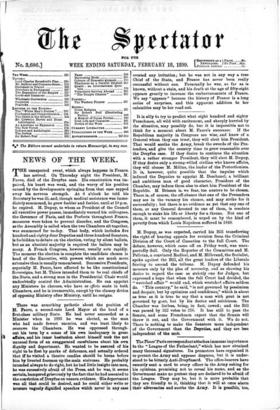There was something pathetic about the position of ,i. Faure,
a second-rate Lord Mayor at the head of a first-class military State. He had never succeeded as a Minister when in 1895 he was elected, as the man who had made fewest enemies, and was least likely to overawe the Chambers. He was oppressed through- out his term by a sense of his own inadequacy in great affairs, and his inner hesitation about himself took the not unusual form of an exaggerated carefulness about his own dignity and deportment. He wanted to be assured of his right to be first by marks of deference, and actually ordered that if he visited a theatre candles should be borne before him by liveried footmen up the main staircase. He probably intended always to do right, but he had little insight into men, he was excessively afraid of the Press, and he was, it seems certain, hampered grievously by the fact that he had assented to the conviction of Dreyfus on unseen evidence. His deportment was all that could be desired, and he could either write or procure vaguely dignified speeches which never in any case created any irritation ; but he was not in any way a true Chief of the State, and France has never been really successful without one. Personally he was, so far as is known, without a stain, and his death at the age of fifty-eight appears greatly to increase the embarrassments of France. We say "appears" because the history of France is a long series of surprises, and this apparent addition to her calamities may be her road out.






































